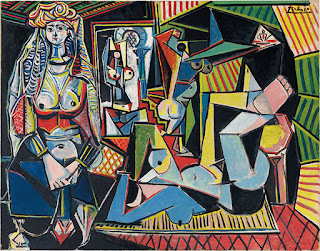Mental Health and Art: Narcissism

"Narcissistic personality disorder" is a mental condition in which people have an inflated sense of their own significance, a desire for excessive attention and admiration, and a lack of empathy for others. This particular mental condition is highly interconnected with the art world. Yi Zhou claims that artists who are narcissistic, have higher prices and recognition in the art world and she supports her claim by investigating artists' signature sizes. Apparently, in psychology, there is a certain correlation between signature size and self-regard. Zhou measures over hundreds of signatures and compares the results to historical auction price data, numbers of museum shows, and "artistic reputation". She also looks at the number of self-portraits done by the artist and the frequency of the use of the words "I" and "me" in published interviews. In the analysis of hundreds of pre and post-war artworks, Zhou found that narcissistic artists' wo...



